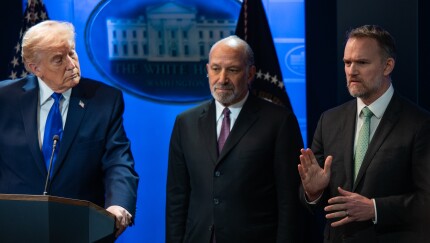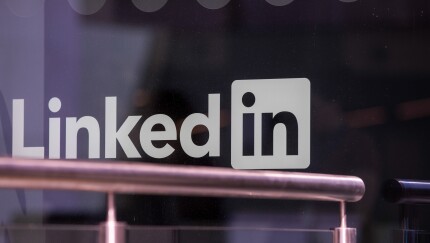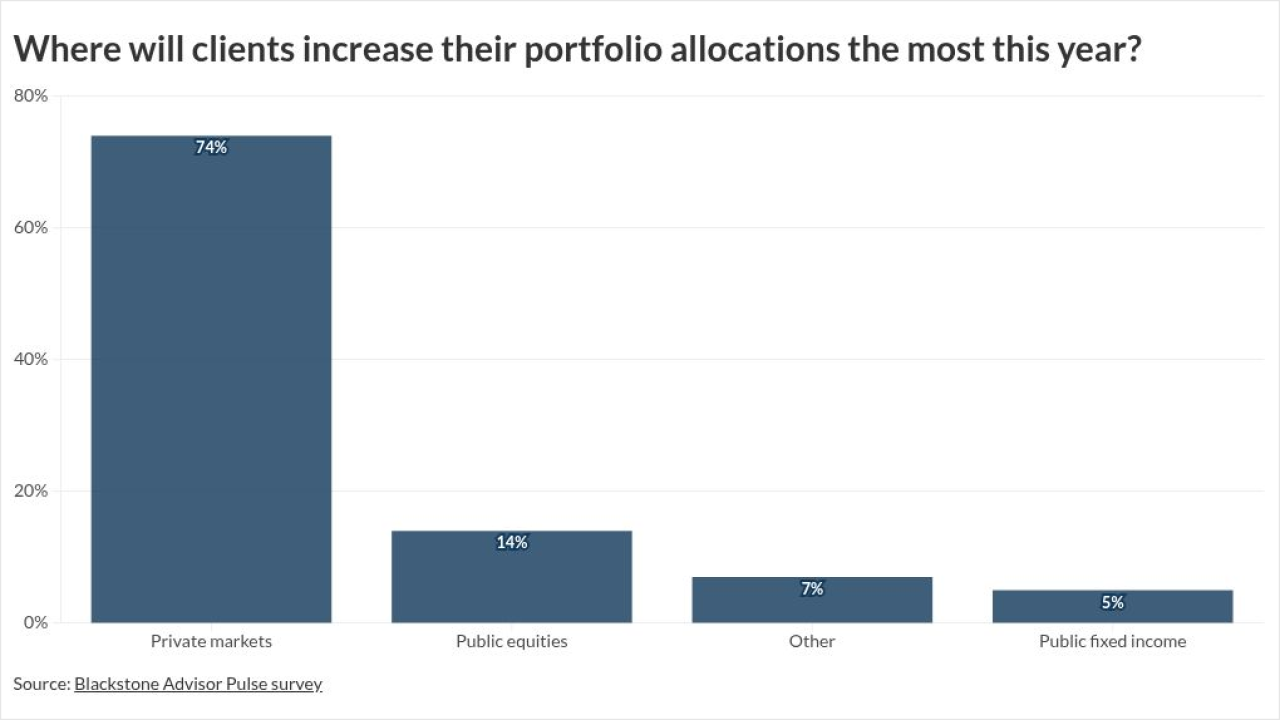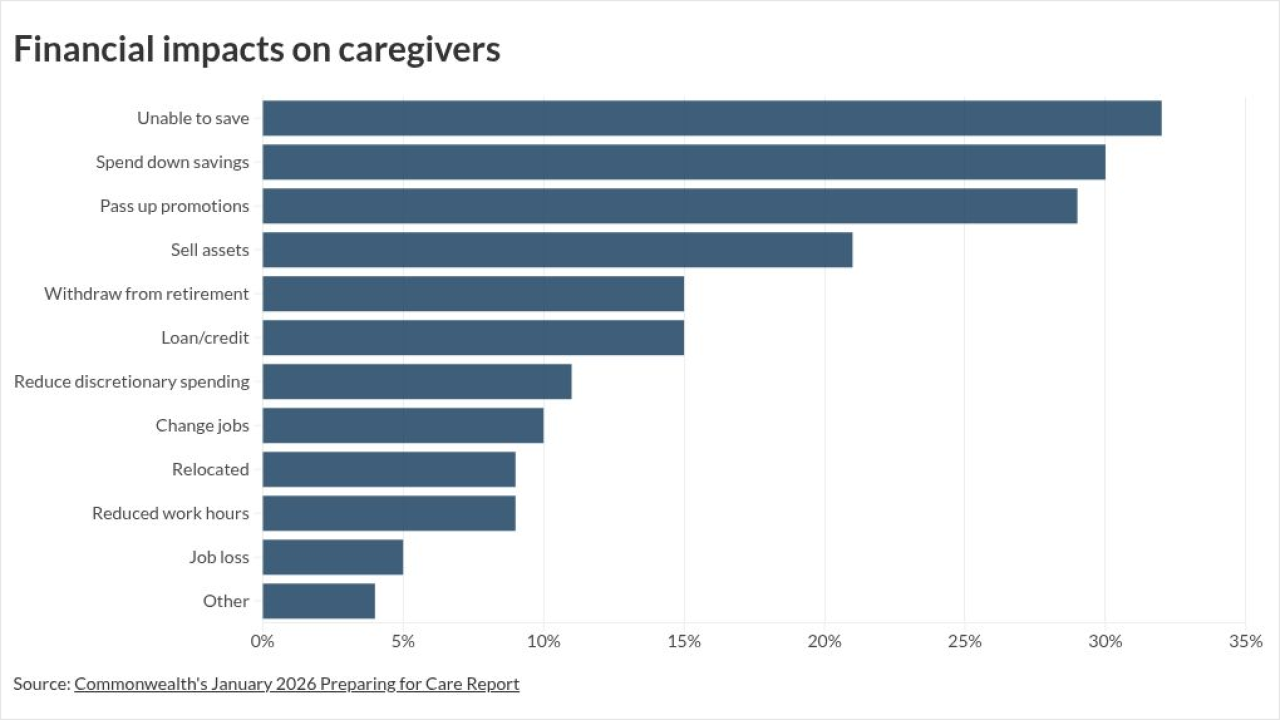(Bloomberg Gadfly) — The Department of Labor rocked the brokerage world several months ago when it decreed that brokers must — horror of horrors — put their clients' interests ahead of their own.
The so-called fiduciary rule (which applies only to retirement accounts for now) is meant to address a longstanding problem. Brokers routinely recommend mutual funds to retirement savers as an easy way to broadly diversify their accounts. But unbeknownst to investors, in many cases the mutual fund companies pay brokers to sell those funds.

Brokers would no doubt argue that this naked conflict of interest doesn't influence which funds they choose to recommend. Maybe so, but the new fiduciary rule now forces brokers to make sure that their clients' interests are, in fact, top of mind. That means brokers will have to stop taking money from mutual fund companies altogether or disclose those payments to their clients — a conversation that will rightly raise some uncomfortable questions.
The full requirements of the rule don't go into effect until January 2018, so it remains to be seen how brokers will adapt. The first hint, however, recently came from Edward Jones — the brokerage behemoth based in St. Louis. It's not encouraging.
The 6-3 Supreme Court ruling against one of President Donald Trump's signature economic policies was consequential, but experts say volatility is unlikely to be over.
A new bipartisan bill would exempt retroactive Social Security payments from federal taxes, easing a surprise financial burden for millions of retirees.
A pair of putative class-action lawsuits this month accuse Edward Jones of allowing information clients enter online to be harvested for use in targeted marketing campaigns.
Edward Jones said it will stop offering its clients mutual funds (and ETFs) for commission-based retirement accounts. Investors in those accounts will either have to make do with a hodgepodge of stocks, bonds, variable annuities and certificates of deposit, or move to a managed account that charges an asset-based fee (that is, a fee based on a percentage of assets under management).

In the months leading up to the adoption of the fiduciary rule, traditional brokers criticized the new rule. They said it would either narrow investment choices available to investors or increase the cost of investing — or possibly do both.
Enter Edward Jones, which appears determined to make those predictions a reality.
-
The case, filed on behalf of an on-call branch office manager who works with advisers, follows similar retirement plan-related litigation recently filed against other firms, including Morgan Stanley.
August 23 -
The firm is among the first to detail how its 14,000 advisers will comply with the new regulation.
August 19
Edward Jones must know that the average investor's account is too small to properly diversify one stock and bond at a time. Taking away mutual funds and ETFs from commission-based accounts, therefore, all but forces those investors into asset-based fee accounts, which will mean higher costs for many of the firm's investors.
It doesn't have to be this way, of course. There are plenty of mutual funds and ETFs that don't pay brokers to sell their funds. Many of them are low cost funds that are perfectly aligned with investors' best interests, and there's no good reason why those funds couldn't be available to commission-based accounts at Edward Jones.
Edward Jones should go further, however, and demonstrate what the highest aspirations of the fiduciary rule could look like instead of finding ways to penalize its clients simply because the rule exists.
Edward Jones should take note, because investors are already flocking to those friendlier locales
For starters, brokers should get paid exclusively by investors so that their advice is free from conflicts. Also, investors should be able to choose between a managed account that charges an asset-based fee and a self-directed account that charges commission-based fees. Either way, investors should have a full menu of investment options available to them.
Traditional brokers are kidding themselves if they think they can stick it to investors and then blame regulators for the gouging. In fact, the DoL's fiduciary rule isn't breaking new ground so much as finally dragging traditional brokers into the modern era.
There are already plenty of places where investors can find conflict-free advice and cost effective investing, including discount brokerages, independent financial advisers, low-cost mutual funds and — more recently — robo advisers.
Edward Jones should take note, because investors are already flocking to those friendlier locales. Vanguard, for example, took in a record $236 billion in assets last year alone. The message is clear: Traditional brokerages don't have forever to get their act together.
From a darkness sweeping over the realm, to the right thing to do, advisors and experts debate the changes wrought by a new fiduciary rule.
Brokers can't do it alone. They need investors and mutual funds to think clearly too. If investors want advice that's free from conflicts, they'll have to pay for it. And mutual fund companies must find a way to distribute their funds without the aid of backdoor payments to brokers. (Here's a hint mutual fund vendors: Offer cheaper and better performing funds.)
For the moment, however, Edward Jones isn't offering much to consider other than providing all of us with a classic glimpse of an age-old tension on Wall Street: What comes first, a firm's profits or the best interests of its clients?









